Common Ground Consortium
History
The Common Ground Consortium (CGC) was established in 1989 at the University of Minnesota’s College of Education as it was then called, which received a grant from the Bush Foundation to form a consortium with Historically Black Colleges and Universities (HCBU) to recruit on annual basis African American graduates for advanced study.
The primary purpose of CGC was to provide for the recruitment of Black graduate education students and to support them through their advanced academic journey. That support entailed financial assistance, as well as community support during their graduate studies, including regular check-ins and assistance with professional development.
CGC participants have gone on to become professors, consultants, superintendents, researchers, teachers and have done much to advance Black intellectualism. Throughout the decades of its existence, the CGC network has helped to retain students until they graduate, to foster excellence, and to support community.
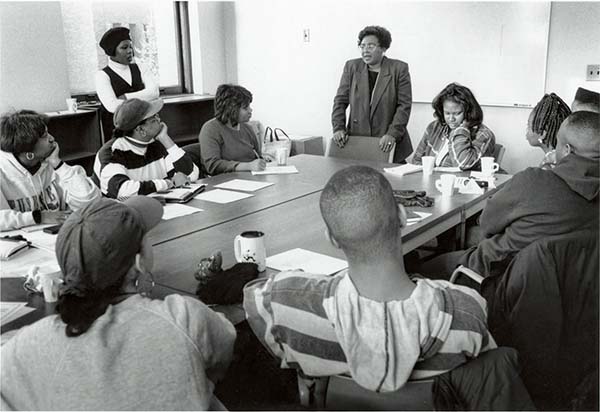
2023 Common Ground Consortium Conference
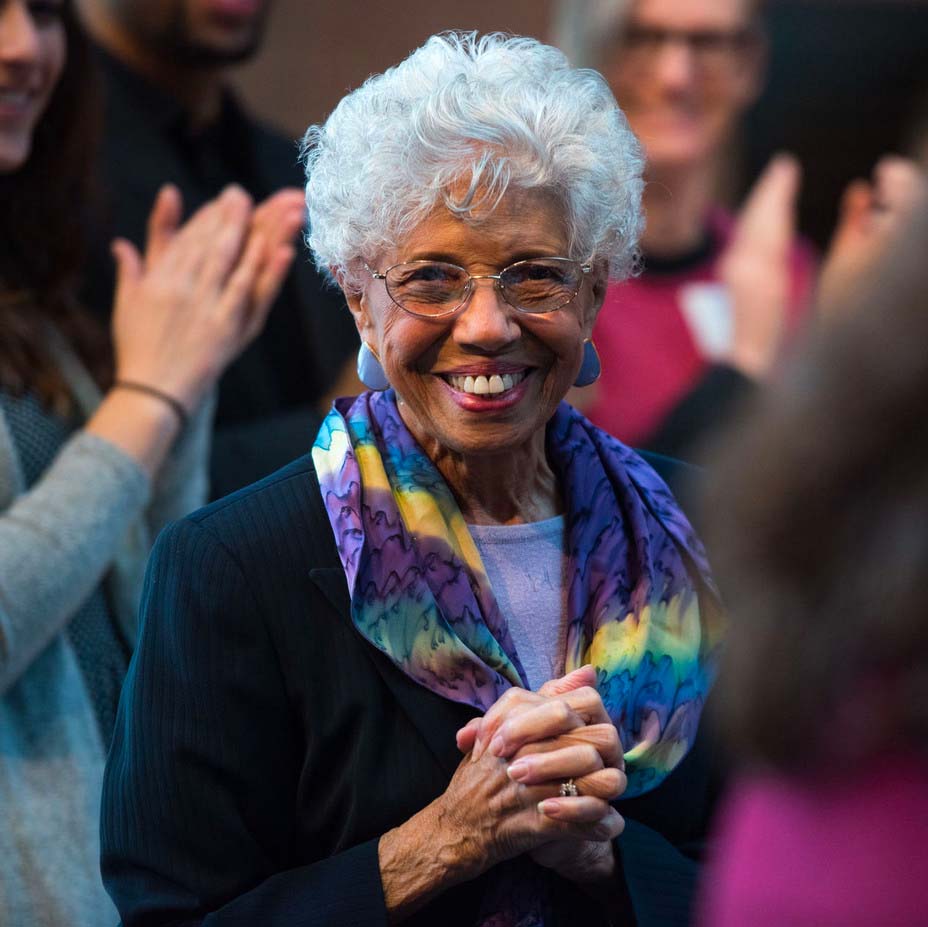
The 2023 Common Ground Consortium Conference Advancing Black Intellectualism: Navigating the Black Atlantic, as we seek to celebrate and promote the connection of Black intellectualism throughout the African diaspora.
Please join us:
The two day virtual event runs
Thursday, May 18, 2023 (9 a.m. to 5:30 p.m.)
and Friday, May 19, 2023 (9 a.m. to 4:30 p.m.)
Registration information will be available soon.
To learn more about CGC, watch the 2021 inaugural CGC conference, Advancing Black Intellectualism: Celebrating the 100th anniversary of the first Black Women to Achieve a Ph.D. degree in the United States. [1:43:22 video]
How you can get involved
There is a holistic process for accepting students to be a CGC scholar. Departments within the College of Education and Human Development (CEHD) can nominate up to two students; note that we anticipate that a total of four new students across the college will be admitted to the program each year. Primary admissions criteria include:
- Academic and lived experience of the student.
- U.S. citizens and U.S. permanent residents entering a doctoral program for the first time in the 2022-2023 academic year.
- Students must be accepted into a doctoral program in one of the departments in CEHD.
- Preference is given to graduates of an HBCU.
- Full-time professionals or employees of the University are not eligible for the program.
Visit your program page for more information about CGC application requirements. CGC offers are made in March, after Department/program admission decisions.
Program Benefits
- Guaranteed Research Assistant or Teaching Assistant funding for graduate study (8 semesters for PhD students). These positions are for 20 hours per week, and include full-time tuition benefits and fully subsidized individual health insurance, in addition to an hourly wage.
- Funding will be guaranteed for four years (eight semesters) for doctoral students as long as the student remains in good standing.
- Funding to present at national and international conferences.
- Monthly cohort meetings for academic and professional development.
- Alumni networking opportunities for academic and professional growth.
Contact
For more information about the CGC, contact Nicola Alexander, Associate Dean for Undergraduate Education, Diversity, and International Initiatives, at nalexand@umn.edu
2022 Common Ground Consortium Scholars
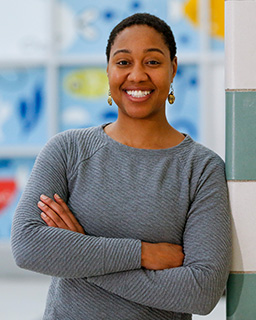
Ayanna Rakhu, PhD
Ayanna Rakhu, is a St. Louis, Missouri native and former CGC scholar (2019 - 2022) in the School of Kinesiology. Her research interests center on addressing racial disparities in aquatics and promoting aquatic engagement. She has worked in the field of aquatics for over 20 years. After learning to swim at age 6 and swimming competitively through age 12, she began her aquatic career as a lifeguard at age 16. Over the years, she has held various instructor, supervisor, and administrative roles in aquatic programs. Ayanna went on to earn a Bachelors of Science in Athletic Training from McKendree University and a Masters of Science in Kinesiology with an emphasis in Sport Psychology from the University of Minnesota. She completed her PhD in Kinesiology (University of Minnesota) with an emphasis in Behavioral Aspects of Physical Activity. Her dissertation research is titled Mother, May I Swim? A Grounded Theory Study of African American Mothers on Developing Swim-Efficacy. Ayanna is an avid swimmer, scuba diver (SSI), and USA Swimming coach, who is passionate about increasing swim participation in communities across the African diaspora.
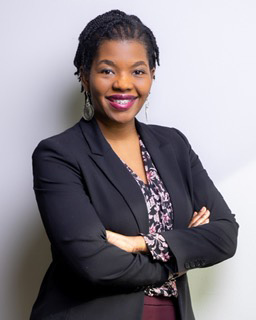
Leah Fulton, PhD candidate
Leah Fulton (she, her, hers) is a PhD candidate at the University of Minnesota studying Higher Education and African American Studies. She has nearly ten years of experience in higher education student affairs with a primary focus on multicultural affairs. Leah's career and research seek to identify, contextualize, and rectify misalignments between higher education’s principles (i.e. aspirations), policies (i.e. high level written rules and procedures), and practices (i.e. day to day culture). She operationalizes her ambitions through research, student advocacy, and Ebony Mom Ivory Tower, a platform where she builds community and develops resources centered on Black mothers in higher education. Within the College of Education and Human Development, she is a co-founder of the Graduate Student Parents and Caregivers Alliance and is an active contributor to the Common Ground Consortium, which is committed to advancing Black intellectualism. Leah's dissertation research examines the experiences of Black mother doctoral students (BMDS) and their post-graduation career choices. Her publications and other areas of interest include the history of Black women in graduate education as well as the experiences of students and faculty of color in higher education leadership spaces. Leah lives in Chicago with her partner, Chris, and their three children.
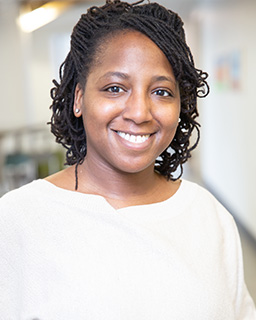
Shakita Thomas Kpetay, PhD candidate
Shakita Thomas Kpetay is a scholar, educator, life coach, and Ph.D. Candidate who currently studies Culture and Teaching within the Department of Curriculum and Instruction at the University of Minnesota Twin Cities. A native of Chicago, IL, her research broadly focuses on African American identity and education, racial capitalism and school restructuring/ school closures, culturally relevant pedagogy, and nonformal Black education. Some of her past projects include: African American identity in Cameroon and Ghana, the Young Women Initiative of Minnesota, and (Pp)an Africanism and nonformal Black education. Thomas Kpetay has presented her work at national and international conferences such as the Critical Race Ethnic Studies Association, American Educational Research Association, and the Comparative and International Education Society. Furthermore, Thomas Kpetay is a member of Solidarity Twin Cities and Co-Chair of the Nu Skool for Afrikan American Thought. In her free time, she enjoys participating in Afro-beats Zumba with Coach Val, spending time with family and dogs, and taking short walks around her neighborhood.
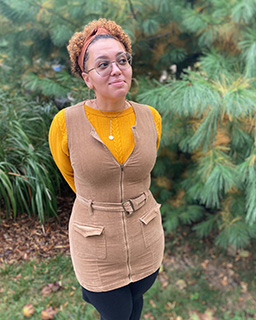
Sydney Carlson, PhD student
Sydney Carlson is a 3rd year PhD student studying school psychology. She plans to use her degree to consult schools on anti racist policy and behavior changes while being a lecturer at a university. Her research interests include equity audits, behavior change, restorative justice practices, and how to dismantle the school to prison pipeline. Outside of school, she enjoys baking, trying out new recipes, and traveling for long periods of time.
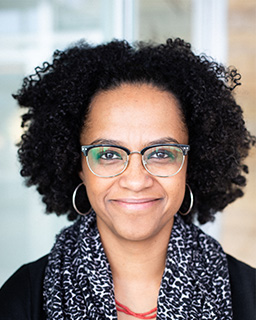
Tehout Selameab, MPP, PhD candidate
Tehout Selameab brings 15 years of experience in the field of community-based prevention research and evaluation. Working with both private and government organizations, Tehout applies program evaluation methodologies to support a range of organizational needs including strategic planning, data-driving decision-making and outcomes demonstration of prevention efforts. Tehout has worked in a broad range of public health topics, but her current interests are related to implementation science - a field of study interested in better understanding why programs fail and how to minimize failure through systematic and targeted assessments and customized planning processes. Using a participatory and collaborative approach, Tehout enjoys making program evaluation methods understandable and empowering clients to skillfully accelerate progress in their communities. Tehout is a graduate of the Humphrey School of Public Policy where she studied policy analysis and evaluation studies. She currently teaches as an Adjunct Instructor in Saint Catherine’s undergraduate public health program. Tehout is currently an Evaluation Studies doctorate student at the University of Minnesota.
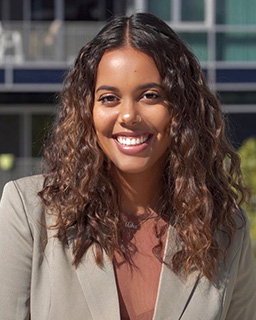
Asha Omar, PhD candidate
Asha Omar is an equity teacher at Brooklyn Center Elementary. Before moving to Minneapolis to work on her PhD, she taught 1st grade for three years in Wisconsin. Asha is also an artist who uses art as a form of resistance, self-expression, and self-love. She explores her life experiences to challenge dominant narratives represented in art. With her background as an artist, she is specifically interested in the ways arts-based methods can portray truths that have traditionally been marginalized and offer a platform for others who may not have the words to convey their experiences.